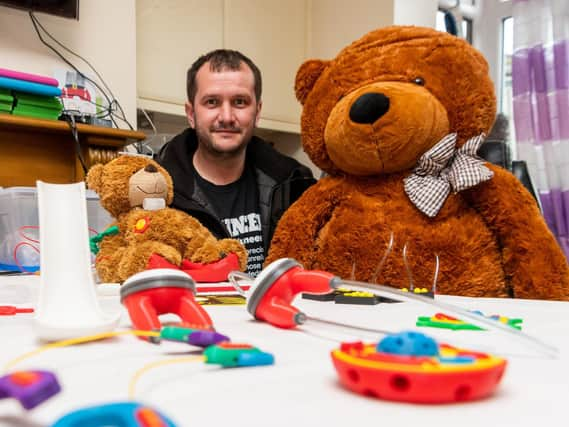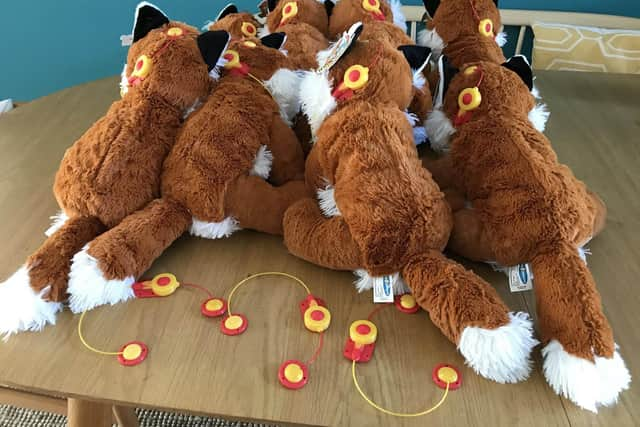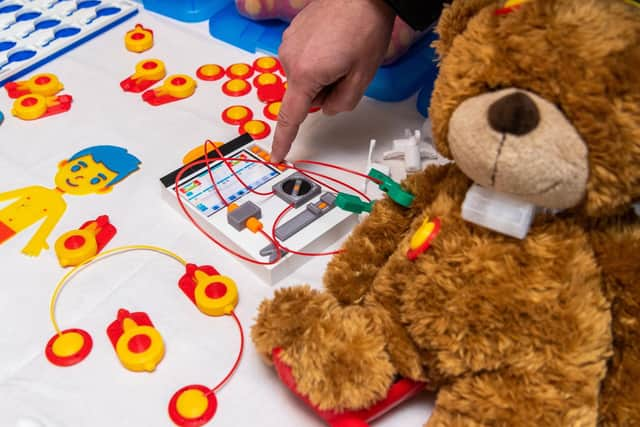Leeds man creates 3D-printed brain implants for teddies to donate to Sheffield children with brain disorders


Nick Hardman, from Morley, has provided some much-needed comfort to 20 children in South Yorkshire after he donated the toys with miniature brain implants just like the ones they need to drain fluid from their brains.
Mr Hardman uses a 3D printer to design and produce custom cuddly toys with medical apparatus for children with different conditions, such as teddy bears with dialysis machines for young people with kidney failure.
Advertisement
Hide AdAdvertisement
Hide AdHis latest venture has seen him make 3D-printed implants for cuddly fox toys for children with hyrocephalus – a condition which results in excess fluid in the brain, which is drained into the chest using the implant.


The implants were made and inserted into toy foxes before being supplied to the Sheffield Association for Spina Bifida and Hydrocephalus to give to children, with one young recipient having said it "looks just like me".
Volunteers from the charity hand-sewed the toy foxes then sent them to him to insert the implants.
“It’s really quite special that all these kids have been able to get these,” said Mr Hardman, 38.
Advertisement
Hide AdAdvertisement
Hide Ad"These children go through a rough time and need regular surgery. It's also a great for the parents because they can use the teddies to explain to their children how the implants work, because in the eyes of a child, it's just a weird bump on their skin.


"I've made about 350 of these implants now and they've been shipped across the world."
The single father who has two children of his own set up his 3D Toy Shop in October last year and runs it as a side project to his job in automation and robotics fixing machinery.
He originally began using the 3D printer last year to create PPE, but later looked towards creating toys. After a request from one parent for a soft toy with one of the implants, he began making others with various other forms of medical equipment.
Advertisement
Hide AdAdvertisement
Hide AdMr Hardman has previously worked with Great Ormond Street Hospital and is also working with Birmingham Children’s Hospital to supply toy raccoons with tracheostomies for children who have had surgery because of breathing problems.